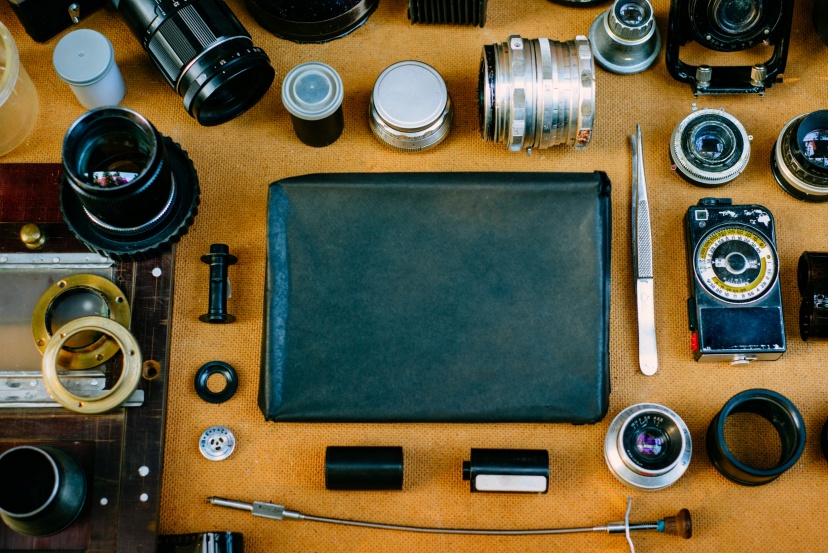Best Free Tools for Photo Editing in 2026
If you’re just starting out in photography, chances are you’ve asked yourself: “What’s the best free photo editing software for beginners in 2026?” I’ve been down that road too, experimenting with dozens of programs before finding my favorites. The truth is, you don’t need to spend a fortune to polish your shots. With today’s tech, there are plenty of free, beginner-friendly tools that rival premium editors.
Why Free Photo Editing Software Matters in 2026
The Rise of Accessible Editing Tools
Back in the day, you needed pricey software like Photoshop to edit photos seriously. Fast forward to 2026, and free tools are so advanced that beginners can edit like pros without opening their wallets.
Why Beginners Should Start with Free Software
When you’re learning, mistakes are inevitable. Free software gives you the freedom to experiment without financial pressure. Think of it as learning to drive in a safe, affordable car before upgrading to a sports car.
What to Look for in Free Photo Editing Software
User-Friendly Interface
As a beginner, you don’t want to be overwhelmed. A simple interface helps you focus on creativity rather than endless menus.
Essential Features for Beginners
Look for tools that offer cropping, color correction, exposure adjustments, and filters. These basics will cover 90% of what you need starting out.
Cross-Platform Availability
Whether you’re on Windows, Mac, or even mobile, your editing tool should be accessible wherever you are.
Cloud vs. Offline Editing
Some apps (like Canva and Pixlr) run online, while others (like GIMP and Darktable) work offline. Choose based on your internet access and editing style.
Best Free Photo Editing Software for Beginners 2026
Tool 1: GIMP – The Open-Source Powerhouse
Why GIMP Still Matters in 2026
GIMP has been around for decades, and it’s still one of the most powerful free editors. It’s like having Photoshop without the subscription fee.
Best Features for Beginners
Layers, brushes, and advanced retouching tools—yet it’s still free. Beginners can start simple and grow into its advanced features.
Tool 2: Canva – Simplicity Meets Creativity
Perfect for Quick Edits
Canva isn’t just for graphic design; it’s also perfect for quick photo edits. If you want drag-and-drop simplicity, Canva is your friend.
Social Media Integration
One-click resizing for Instagram, Facebook, and YouTube makes it perfect for beginners creating content.
Tool 3: Darktable – A Lightroom Alternative
Non-Destructive Editing Explained
Darktable is a dream for anyone shooting in RAW. It doesn’t alter your original file, meaning you can edit freely without fear.
RAW Image Support
If you’ve moved from your phone to a DSLR or mirrorless camera, Darktable gives you pro-level editing for free.
Tool 4: Pixlr – Editing in Your Browser
Easy-to-Use for Beginners
No need to download heavy software. Pixlr runs straight from your browser, making it accessible on any device.
AI-Powered Features
Automatic background removal and one-click fixes save beginners hours of frustration.
Tool 5: Photopea – The Photoshop Lookalike
Familiar Interface
Photopea feels like Photoshop, which is a plus if you plan to transition to Adobe tools later.
PSD File Compatibility
It opens Photoshop files, making collaboration easier if friends or colleagues use Adobe software.
Tool 6: Fotor – Filters and One-Click Magic
Great for Quick Enhancements
Fotor is built for beginners who love filters and effects. Think of it as Instagram editing, but with more control.
Collage & Batch Editing
You can edit multiple photos at once and create stylish collages in minutes.
How to Choose the Right Tool for Your Needs
Matching Tools with Your Editing Goals
If you want to dive deep into professional editing, go with GIMP or Darktable. If quick social content is your goal, Canva or Fotor will do the trick.
Trying Multiple Options Before Deciding
Don’t be afraid to test two or three. The best tool is the one you enjoy using the most.
Tips for Learning Photo Editing as a Beginner
Start with Small Projects
Instead of trying to edit a full wedding album, start by retouching a single portrait or fixing a sunset shot.
Explore Tutorials and Communities
YouTube and online forums are gold mines for step-by-step guides. You’ll pick up faster than you think.
Post-Processing Hacks for Beginners
Basic Color Corrections
Boost vibrancy, adjust white balance, and reduce unwanted tints. These quick fixes often make the biggest impact.
Cropping & Composition Fixes
Cropping out distractions can instantly turn a “meh” photo into something striking.
Sharpening Without Overdoing It
A touch of sharpening makes details pop, but too much can ruin the natural look.
Common Mistakes Beginners Should Avoid
Relying Too Much on Filters
Filters are fun, but overusing them makes photos look artificial. Less is more.
Ignoring Resolution and Export Settings
Always export in the right size and format. Low-resolution exports can ruin an otherwise great photo.
Final Thoughts
The best free photo editing software for beginners in 2026 isn’t about finding the most powerful tool—it’s about finding the tool that matches your style and learning curve. Whether you want pro-level control with GIMP and Darktable or quick-and-easy edits with Canva and Pixlr, there’s a perfect option for you. My advice? Try a couple, experiment, and enjoy the creative process.
>>> See TODAY’s deals for photo editing software HERE <<<
FAQs
Q1: What is the easiest free photo editing software for beginners?
Canva and Fotor are the most beginner-friendly because of their simple interfaces and drag-and-drop features.
Q2: Which free editor is best for RAW images?
Darktable is your best bet—it’s like Lightroom, but free.
Q3: Can I use these tools on mobile?
Yes, apps like Canva, Pixlr, and Fotor have mobile versions for quick edits on the go.
Q4: Do I need internet access to use these editors?
Some (like GIMP and Darktable) work offline, while Canva and Pixlr require an internet connection.
Q5: Will free software limit my creativity?
Not at all—most free editors today rival premium tools. Your creativity is the only limit!
Further photo tips here




